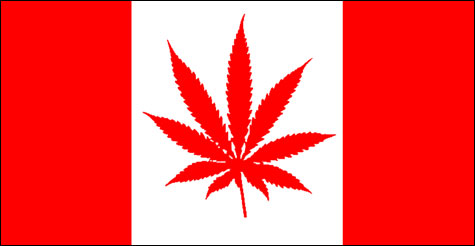
Tariffs are working just fine (for Trump)
5 months ago
The author of an article in a Boston newspaper that claimed Prince Edward Island was a marijuana paradise has fired back at Canadians who derided his story as wildly inaccurate.
Alan Earls, a reporter for the Boston Phoenix weekly, had described P. E. I. as "Pot Edward Island," and claimed among other things that it has become a haven for dope growers fuelled by cheap Quebec electricity.
In reality, P. E. I. gets most of its power from New Brunswick, and Denis Morin, and RCMP spokesman quoted in the article about the seizure of increasing amounts of marijuana in the province later said that the figures were "quite minor in the scale of things for P. E. I. and Canada."
In a response to his critics in Monday's edition of the newspaper, Mr. Earls said they were motivated by "anger that a dumb American would have the audacity to find fault with anything Canadian (it is tough, I'll admit), let alone anything having to do with Canada's garden spot, P. E. I."
ALAN R. EARLES RESPONDS
Prince Edward Island is probably the nicest place I’ve ever visited. There, I’ve said it. Unfortunately, when I’ve traveled there (twice, in 2006 and 2008), I have also discovered that, despite the fact that it looks like paradise, it has problems just like other places. In particular, the provincial newspapers have had quite a few stories about local pot growers. So, I got interested and wrote an article for the Phoenix about this aspect of PEI that is not well known to outsiders and which, in fact, probably should worry islanders.
Folks up north nailed me on a couple of reporting errors — like my statement that PEI imports “cheap” electricity from Quebec (it actually comes from New Brunswick). I was also told repeatedly by Canadian critics that I had named the wrong person as director of the PEI Federation of Agriculture. After re-checking my facts, however, I found that I was indeed right and my friends in Canada were wrong: the holder of the title is in fact Mike Nabuurs (though I did miss the last two consonants on his name in my piece — sorry Mike!).
The article was not meant to suggest that PEI has become a giant exporter of pot or a major narcotics haven north of the border. Rather, the point was to contrast an ongoing and seemingly worsening situation with PEI’s image as a clean, peaceful, and serene destination. That this situation could worsen or could impact the larger picture of drug trafficking in New England and in the Maritimes seems implicit. The minor factual errors in the story do not undercut the accuracy of this message.

When you think of PEI, you probably come up with crisp, clean-cut tourist-brochure images: lush and rolling hills, tranquil ocean beaches, villages of whitewashed cottages and, inevitably, the smiling face of the island’s indefatigably cheery heroine, Anne of Green Gables. But while Lucy Maud Montgomery’s fictional Edwardian character maintained her Pollyanna disposition on the strength of nothing but her spunk and a cheerily romantic vision of how life should be, it seems modern-day islanders have discovered another way to smile through the summer and avoid the blues during the bleak local winters.
Getting an authoritative picture of the province’s pot industry is difficult.
something that may be deep-rooted in the largely libertarian attitudes of PEI and the Maritimes in general.
Officialdom is not immune to such sentiments either. In July 2003, when Marc Emery, a Vancouver activist on a crusade to make pot legal in Canada, performed his trademark stunt of getting high in public, Charlottetown police looked the other way and refused his invitation to arrest and prosecute.
Many of the mainstream farmers Nabuu represents — for the most part a prosperous bunch in this “Garden of the Gulf” — aren’t paying much attention to the burgeoning industry.



